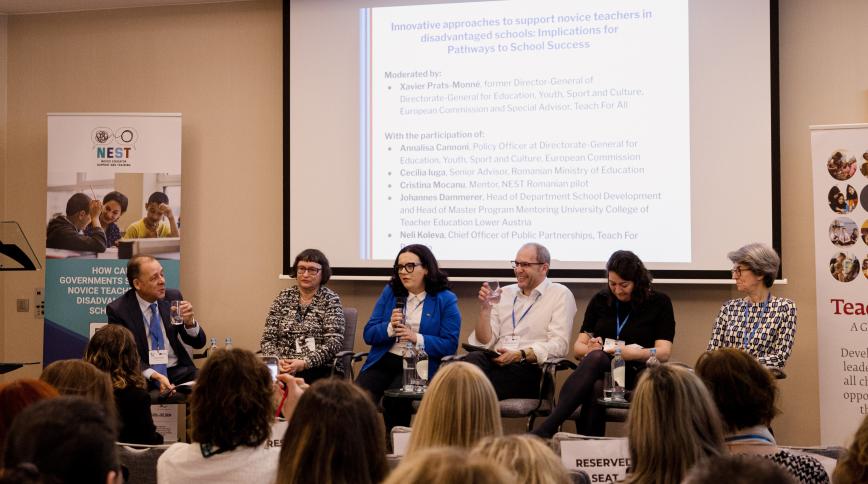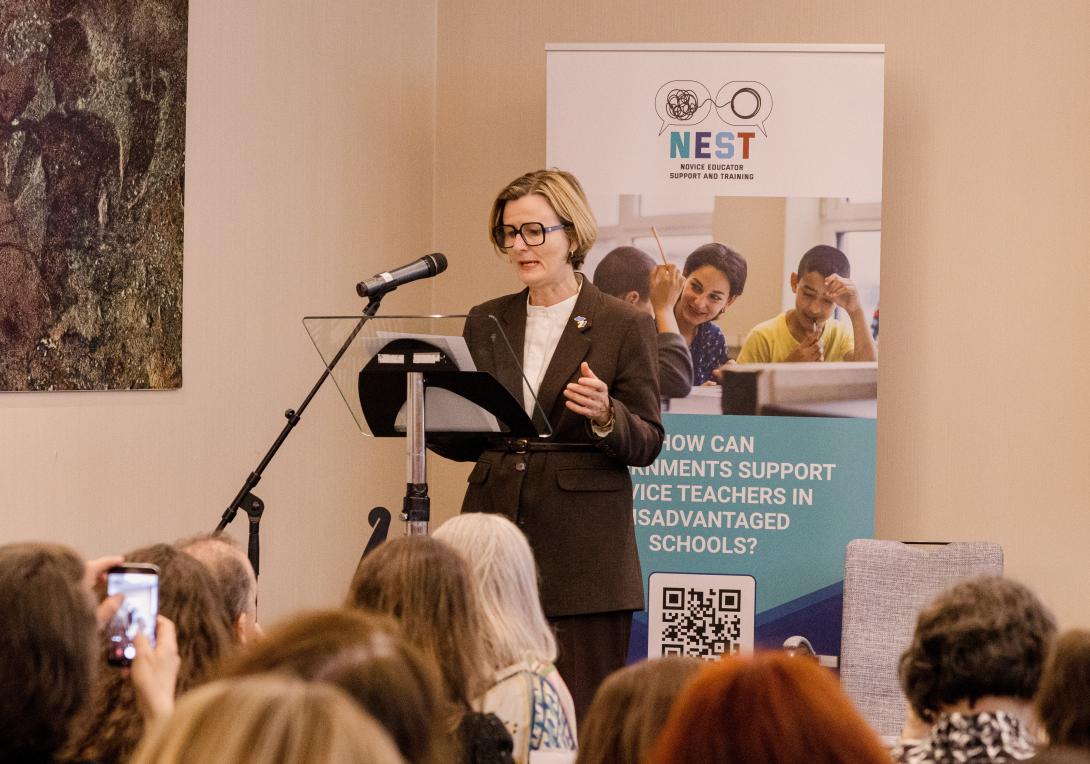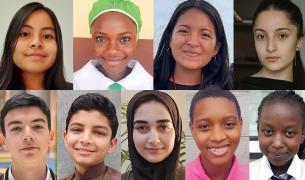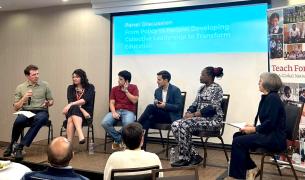Teach For All Partners in Europe celebrate the success of the Erasmus+ NEST project

After a three-year collaboration, the organizations involved in Novice Educator Support and Training (NEST) celebrated the conclusion of the successful Erasmus+ policy experimentation project in Sofia, Bulgaria on Saturday, April 20. The NEST project, driven by a consortium including Teach For All network partners Teach For Austria, Teach For Belgium, Teach For Bulgaria, Teach For Romania, Empieza por Educar, and Teach For All's global organization, alongside key regional educational stakeholders, aimed to develop an adaptive mentor training program tailored to support novice teachers. The project addressed the critical need for mentorship in disadvantaged schools, where novice teachers often face unique challenges. (Watch the video above to learn more.)
The project’s culminating event coincided with evaluation results demonstrating that the NEST mentoring model is an effective solution to motivate experienced teachers to become mentors, and to support novice teachers in disadvantaged schools. The data shows that mentors trained under NEST had higher enthusiasm and self-assessed competences compared to control groups, and could better adapt their approach to the needs of novice teachers, while novice teachers reported better focus and fit of mentoring and higher mentor competence. Additionally, some novice teachers with NEST mentors demonstrated increased teaching competence, professional resilience, and willingness to stay in the profession.
At the heart of NEST were two pivotal interventions, based both in external evidence and the Teach For All network’s approach to teacher support: the NEST mentor training program, and adaptive mentoring for novice teachers at disadvantaged schools.
The mentor training program, developed by Empieza por Educar, Teach For All’s network partner in Spain, aimed to teach mentors how to implement adaptive mentoring strategies tailored to the specific needs of novice teachers in disadvantaged school settings. Mentors underwent a two-year training program, with most of the content delivered in the first year through a combination of self-study modules and trainer-led sessions. The second intervention, adaptive mentoring for novice teachers, involved mentors applying the skills learned during the training program to provide personalized mentoring to the teachers they support.
To celebrate the project’s successful results, Teach For All organized the EU Policy Conference “An evidence-based approach to mentoring for novice teachers in disadvantaged schools,” which aimed to engage policymakers, educators, and staff working in school education to advance education policy in the EU. Pia Ahrenkilde Hansen, Director-General of Directorate-General for Education, Youth, Sport and Culture (DG EAC) at the European Commission, delivered the event’s keynote address, followed by panels moderated by Teach For All’s Special Advisor, Xavier Prats-Monné, and Akis Kyriacou, Deputy Head of Unit Evidence Based Policy and Evaluation at DG EAC, European Commission.

A project with impact in policy reform
The fruitful engagement of Empieza por Educar alongside public authorities in Catalonia in the implementation of the NEST pilot in Spain has already had an impact on education policy. The success of the pilot led to the launch of Sensei, a new novice teacher training and support pilot program. Based on the NEST principles, the Sensei initiative is an innovative program that aims to provide high-quality mentoring support to novice teachers during their first year in the profession. During the next two years, 500 novice teachers will be able to make a greater impact on the learning and wellbeing of students from the outset of their careers.
In Romania, Teach For Romania experts were part of the working groups for improving the existing legislation for education around the role of the teacher and the need to increase initial and continuous training and support. As a result of the Romanian pilot of the NEST collaboration, in September 2023 the Law of Education was enacted, ensuring mentoring is at the core of the teaching career.
A long-standing relationship with the European Commission
Since 2016, Teach For All network partners in Europe and the network’s global organization have championed multi-stakeholder partnerships with the European Commission to drive innovative education policies in the region. Projects like NEST exemplify the power of collaboration in achieving systemic impact. The success of NEST, alongside previous projects like A New Way for New Talents in Teaching and From Inclusive Education to Real Scale Transfer, reinforces the commitment to building a future where all children have equal access to quality education and support to fulfill their potential. Teach For All and its partners celebrate this milestone and look forward to continued collaboration for transformative change in education.



